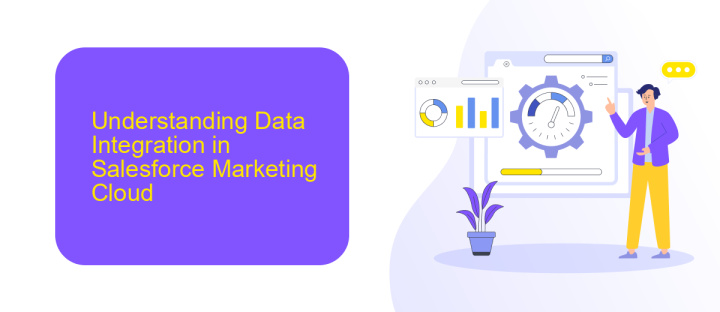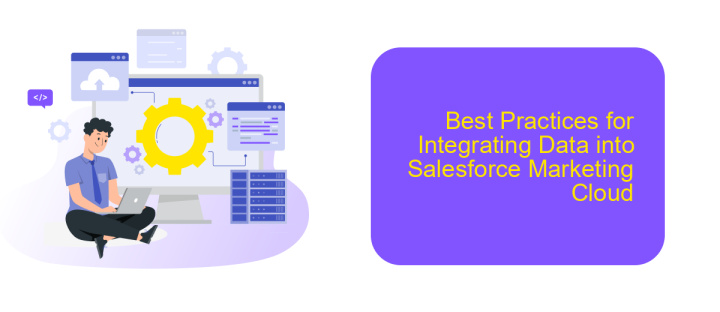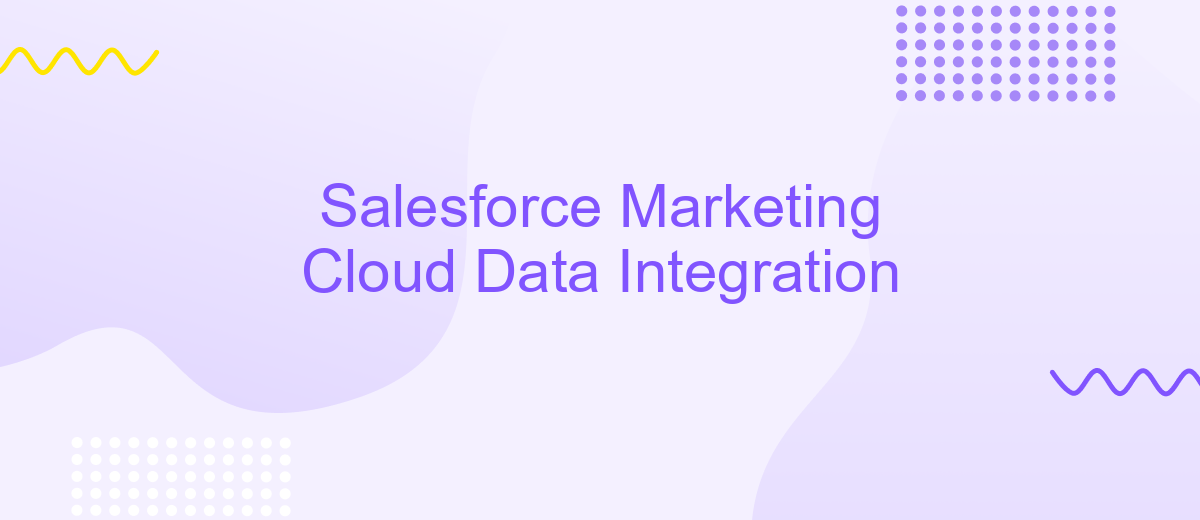Salesforce Marketing Cloud Data Integration
Salesforce Marketing Cloud Data Integration is a powerful tool that enables businesses to seamlessly connect and harmonize their marketing data across various platforms. By integrating diverse data sources, companies can gain deeper insights into customer behavior, optimize marketing strategies, and deliver personalized experiences. This article explores the key features, benefits, and best practices for leveraging Salesforce Marketing Cloud Data Integration to enhance your marketing efforts.
Introduction
Salesforce Marketing Cloud is a powerful platform that enables businesses to deliver personalized marketing experiences across various channels. Integrating data into Salesforce Marketing Cloud is crucial for creating targeted campaigns and gaining valuable insights into customer behavior. This process ensures that marketers can leverage comprehensive data sets to enhance their strategies and drive better results.
- Automated data synchronization
- Real-time data updates
- Seamless integration with various data sources
- Enhanced data accuracy and consistency
One of the effective tools for setting up integrations is ApiX-Drive. This service simplifies the process of connecting Salesforce Marketing Cloud with numerous other platforms, ensuring that data flows smoothly and accurately between systems. With ApiX-Drive, businesses can automate data transfers, reduce manual work, and maintain data integrity, ultimately leading to more effective marketing efforts and improved customer engagement.
Understanding Data Integration in Salesforce Marketing Cloud

Data integration in Salesforce Marketing Cloud (SFMC) is a critical component for ensuring seamless communication and data flow between various systems and the marketing platform. By integrating data, businesses can create more personalized and targeted marketing campaigns, leveraging customer information from multiple sources. SFMC supports various data integration methods, including APIs, FTP, and cloud storage, making it versatile and adaptable to different business needs.
One of the effective tools for setting up these integrations is ApiX-Drive. This service simplifies the process of connecting SFMC with other applications, allowing for automated data synchronization without requiring extensive technical knowledge. With ApiX-Drive, businesses can quickly and easily integrate data sources, ensuring that their marketing strategies are data-driven and up-to-date. This not only saves time but also enhances the accuracy and effectiveness of marketing campaigns.
Key Features and Benefits of Salesforce Marketing Cloud Data Integration

Salesforce Marketing Cloud Data Integration offers a comprehensive solution for businesses looking to streamline their marketing efforts and harness the full potential of their data. By integrating various data sources, companies can achieve more personalized and effective marketing campaigns.
- Unified Data Management: Centralizes data from multiple sources, providing a single view of the customer.
- Enhanced Personalization: Leverages integrated data to create highly targeted and personalized marketing messages.
- Real-Time Analytics: Offers real-time insights and analytics to optimize marketing strategies on the fly.
- Automation Capabilities: Automates repetitive tasks, freeing up time for strategic planning and execution.
- Seamless Integration with ApiX-Drive: Simplifies the integration process with various platforms, ensuring smooth data flow and consistency.
By utilizing Salesforce Marketing Cloud Data Integration, businesses can significantly enhance their marketing efficiency and effectiveness. The integration capabilities, especially with tools like ApiX-Drive, ensure that data is seamlessly connected, enabling more informed decision-making and better customer engagement.
Best Practices for Integrating Data into Salesforce Marketing Cloud

Integrating data into Salesforce Marketing Cloud (SFMC) requires a strategic approach to ensure data accuracy and optimal performance. Start by identifying the key data sources that need to be integrated and establish clear objectives for the integration process.
Utilize tools and services that facilitate seamless data integration. ApiX-Drive, for example, offers robust solutions to automate data transfer between various platforms and SFMC, minimizing manual effort and reducing the risk of errors.
- Ensure data consistency by standardizing data formats across all sources.
- Implement regular data audits to maintain data quality and integrity.
- Use secure methods for data transfer to protect sensitive information.
- Leverage SFMC's native connectors and APIs for efficient data synchronization.
Regular monitoring and maintenance are crucial for successful data integration. By following these best practices, you can enhance your marketing campaigns and achieve better customer insights through reliable and accurate data in Salesforce Marketing Cloud.
Conclusion
In conclusion, integrating Salesforce Marketing Cloud with other data sources is pivotal for optimizing marketing strategies and enhancing customer engagement. By seamlessly connecting various platforms, businesses can harness comprehensive insights, streamline operations, and deliver personalized experiences to their audiences. The integration process, while complex, is made more manageable with tools like ApiX-Drive, which facilitate the automation and synchronization of data across multiple systems.
Ultimately, the success of your marketing efforts hinges on the quality and accessibility of your data. Leveraging robust integration solutions ensures that your Salesforce Marketing Cloud operates at its full potential, providing a unified view of customer interactions and driving informed decision-making. As the digital landscape continues to evolve, staying ahead with efficient data integration practices will be crucial for maintaining a competitive edge and achieving long-term success.
FAQ
What is Salesforce Marketing Cloud Data Integration?
How can I integrate Salesforce Marketing Cloud with other systems?
What types of data can be integrated with Salesforce Marketing Cloud?
Is it possible to automate data integration processes in Salesforce Marketing Cloud?
What are the benefits of integrating data with Salesforce Marketing Cloud?
Strive to take your business to the next level, achieve your goals faster and more efficiently? Apix-Drive is your reliable assistant for these tasks. An online service and application connector will help you automate key business processes and get rid of the routine. You and your employees will free up time for important core tasks. Try Apix-Drive features for free to see the effectiveness of the online connector for yourself.

